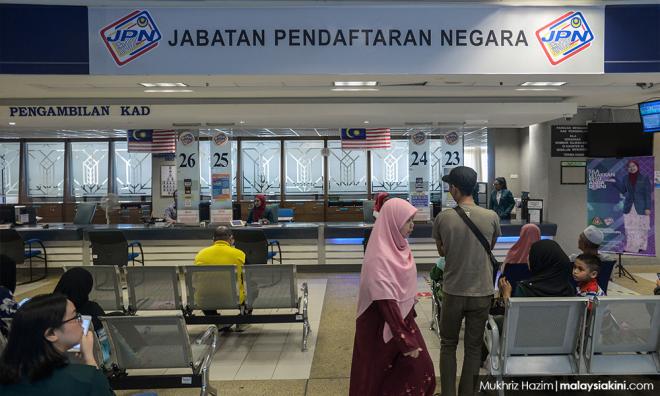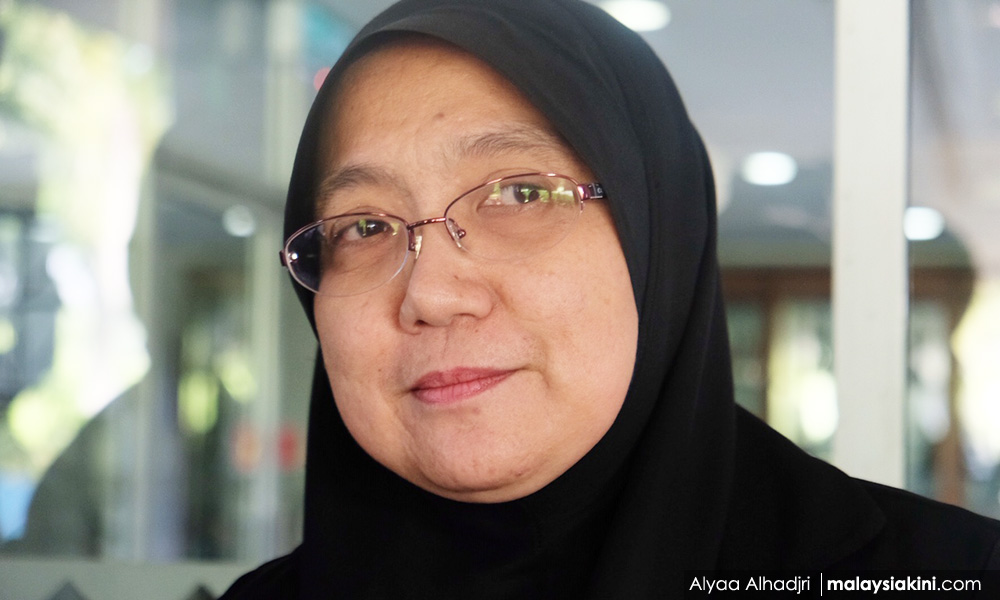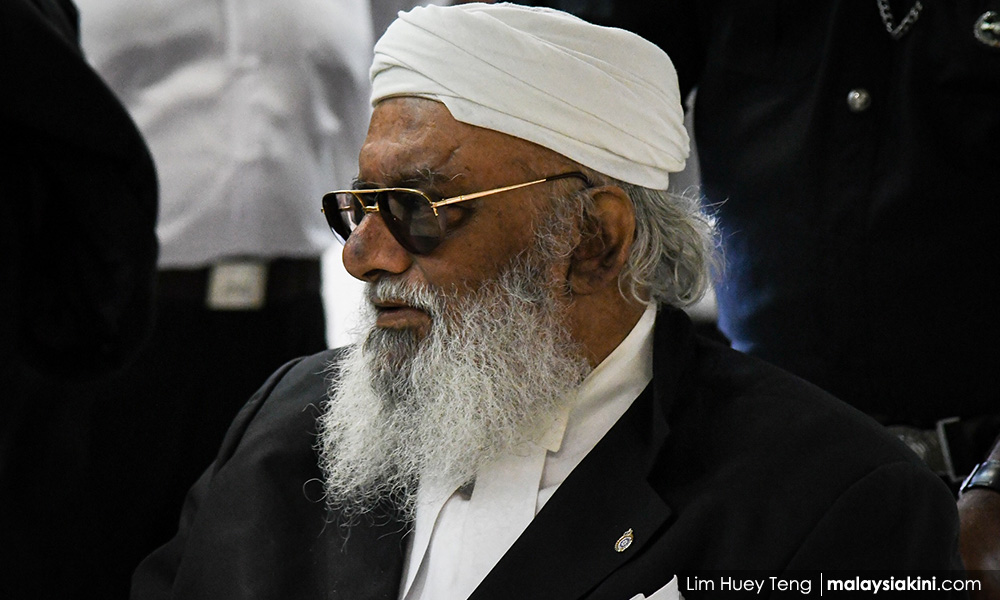
A Muslim child conceived out of wedlock should not be allowed to adopt the father’s name as a surname because the father’s name does not amount to a family name, the Federal Court heard today.
Senior federal counsel Suzana Atan tells the seven-person apex court bench that the National Registration Department should not be compelled to register the Muslim father’s name as the child’s surname because the father’s name is a personal name rather than a family name.
“In the present case, the second respondent’s name ME (part of the MEMK initial of the father’s full name because the names of the child and his parents are not allowed to be published, only the parents’ full name initials are allowed) is not a family name.
“Instead, it is merely the personal name of the person who acknowledged to be the father of the child,” Suzana said.
In 2017, the Court of Appeal allowed the three Muslim respondents’ appeal to compel the NRD, its director-general, and the government, to register the father’s name as the child’s surname rather than the current one which is “bin Abdullah”.
On cause papers, the three respondents are merely labelled as “a child” (seorang kanak-kanak), MEMK (father’s initials) and NAW (mother’s initials).
The Court of Appeal had agreed that the provisions of Section 13A of the Births and Deaths Registration Act 1957 could be used to allow the child’s surname to adopt the father’s name.
Section 13A (1) stated that the surname, if any, to be entered in respect of a legitimate child shall ordinarily be the surname, if any, of the father.
Section 13A (2) stated that the surname, if any, to be entered in respect of an illegitimate child may, where the mother is the informant and volunteers the information, be the surname of the mother; provided that where the person acknowledging himself to be the father of the child in accordance with Section 13 requests so, the surname may be the surname of that person (father).
Suzana argued that the reference to the surname in Section 13A refers to family name rather than a personal name, as the child’s father’s name amounted to a personal name.
“The Court of Appeal made its ruling with the crux of the matter being the construction of Section 13A on whether the father’s name can be considered a surname.
“We submit that not everyone (in Malaysia) has a surname. ME is the father’s name, not a surname (family name),” Suzana tells the bench chaired by Chief Judge of Malaya Azahar Mohamed.
Other members of the seven-person panel are Chief Judge of Sabah and Sarawak David Wong Dak Wah, and Federal Court judges Rohana Yusuf, Mohd Zawawi Salleh, Abang Iskandar Abang Hashim, Idrus Harun, and P Nallini.
Suzana argues that Section 13A cannot be used to allow the child to adopt the father’s name as surname because the provision only apply to Eurasians and Chinese people in Malaysia who utilise surnames, while the law does not apply to Muslims and Indians as these groups usually do not utilise surnames when naming a child.
She also submitted that the provision does not constrain NRD from referring to Syariah law or fatwa issued in Malaysia, such as on the issue of naming a Muslim child born out of wedlock, which under normal practice in Malaysia would render the child, such as a boy, be registered with the affix (bin Abdullah) in place of a surname.
“It is reasonable for the NRD to refer to Islamic (jurisprudence or practice in Malaysia) when registering the child’s surname.
“Under the declaration of “hukum syara” (Syariah rules), (the child) has to be named (given surname) as either “bin Abdullah” or any of the 99 names of Allah,” Suzana (below) said.

Among the 99 names of Allah are al-Rahman (The Most Beneficient) and al-Aziz (The Al-Mighty/Self-Sufficient). Abdullah itself means Servant of Allah.
However, K Shanmuga, who acted for the child and his two parents, argued that the Court of Appeal’s ruling is correct as it did made a correct interpretation of Section 13A, which the lawyer submitted was clear and unambiguous.
He told the bench that Section 13A applies to all Malaysians regardless of religion and that the NRD is bound by statute to include the name of the father as the surname of the child.
Shanmuga argued that the NRD had acted unilaterally in inserting the words “bin Abdullah” instead of the father’s name as the surname for the child because there is no specific statute that empowers the department to insert “bin Abdullah” into the child’s birth certificate.
Shanmuga also submitted that it is important that the father’s name is used as a surname for the child in order to safeguard the best interest of the child, because not doing so would risk exposing the child to various issues like the stigma of illegitimacy by other members of the Muslim community in Malaysia, among others.
Lawyer Sulaiman Abdullah, who acted for the Johor Islamic Religious Council, submitted that the Court of Appeal’s decision failed to take into account the provisions of Islamic law in the country.
The Johor Islamic Religious Council is an intervener in the legal action.
He submitted that the civil court, in which the current legal action by the child and his parents are being ventilated at, is not the proper venue to hear the matter and instead it should have been brought to the Syariah Court instead.
“This whole matter is governed by Article 121 (1A) of the Federal Constitution, whereby the issue of legitimacy (of a Muslim) is a matter for the Syariah Court and not the civil court.
“The matter was wrongly brought before the civil court,” Sulaiman said.
The child and his parents had filed the judicial review at the High Court in Johor, where the family lives.
In 2016, the High Court there dismissed the entire legal action.
Article 121 (1A) stated that the civil High Courts of the Peninsula, Sabah and Sarawak shall have no jurisdiction in respect of any matter within the jurisdiction of the Syariah courts.

Sulaiman (above) submitted that it is important that the child’s surname not be that of the father and instead be with that of “bin Abdullah” because the issue of legitimacy is important for Muslims in relation to Islamic marriage and Faraid law in the distribution of property, among others.
He argued that when it comes to the best interest of the child, the parents should have thought about the consequences of sexual relations outside of marriage before they conceived the said child.
“The Court of Appeal decision was based on emotion, “this poor child”, why should he be (be treated) differently from other children? This is a question of Syariah law, that the civil court is not allowed to do.
“To avoid this danger to the local position, I earnestly urge this court to allow the appeal and quash the Court of Appeal decision.
“We are not punishing the child, we are reflecting the position of the law,” Sulaiman said.
“In regards to what my learned friend (Shanmuga) said in the interest of the child, the best interest of the nation requires Islamic law to be upheld and not cut away by the weight of the Court of Appeal,” Sulaiman told the apex court.
After all the parties had put forward their submissions during the open-court proceedings today, Azahar thanked the counsels for their submissions, adding that the panel reserved judgment to a date yet to be fixed as the bench needed time due to parties having raised issues that require serious deliberation.
In May 2017, the Court of Appeal allowed the couple and their child in their judicial review to compel the NRD to replace the child’s 'bin Abdullah' surname with the name of the father in the birth certificate.
The NRD, its director-general and the government filed an appeal to overturn the decision.
Under Syariah Law, a child born less than six months after the parents' marriage is considered illegitimate.
The appellants' case was heard by the Federal Court last year, with the five-member bench led by former chief justice Md Raus Sharif reserving its decision.
Raus has since resigned. Several judges on the panel have also retired, leading to a rehearing of the matter today.
Earlier during today's proceedings, the Federal Court unanimously dismissed Sulaiman's objection to the rehearing of the appeal.
Azahar ruled that due to only one Federal Court judge Ahmad Maarof remaining in the original bench following the retirement of the other judges, the remaining judge has no power to deliver the reserved verdict.
Azahar said this is in line with Section 78 of the Courts of Judicature Act 1964.
Section 78 (1) stated that in the event several judges of a panel become ill or unable through any reason to be present to deliver a verdict that was previously reserved, there must be at least two remaining judges from the original quorum to deliver any such verdict. - Mkini



No comments:
Post a Comment
Note: Only a member of this blog may post a comment.